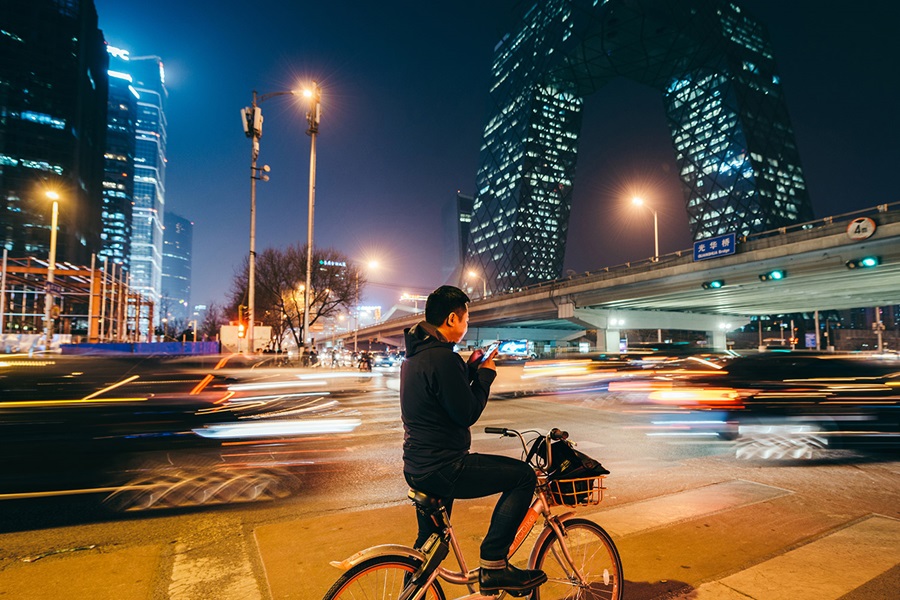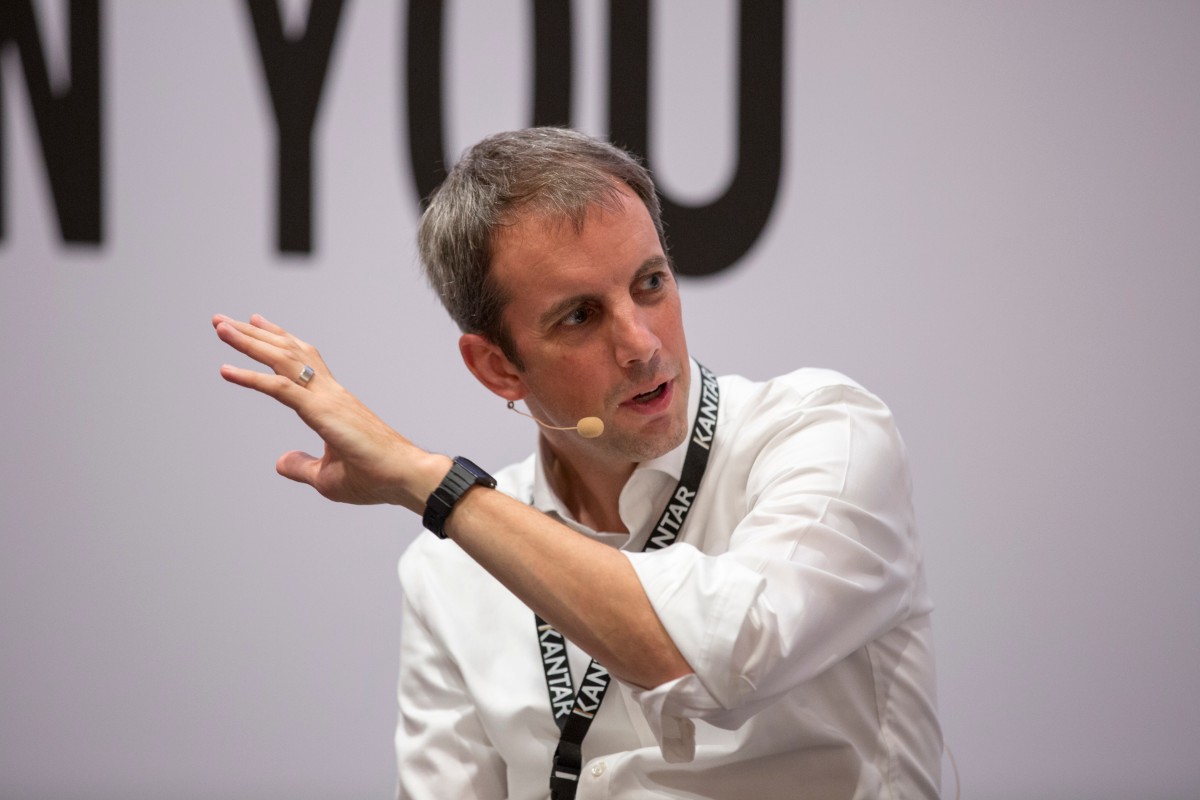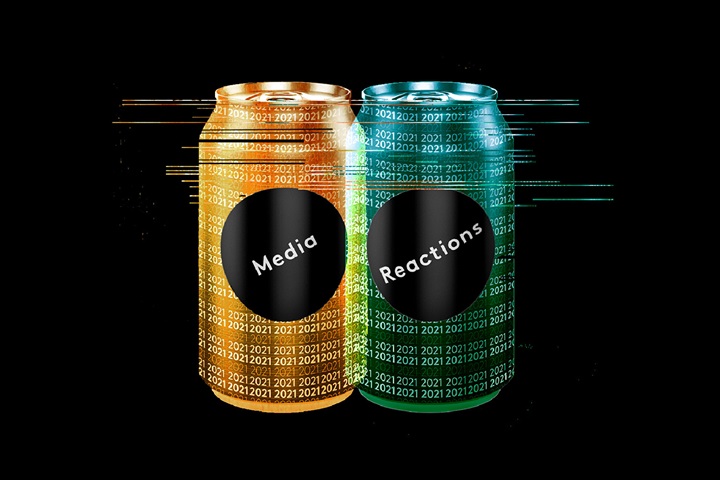Trust matters. BrandZ data show that trust is highly correlated with brand preference and equity for all types of brands. Brands that are highly trusted see stronger growth over time.
However, people trust media brands less than brands in most other categories. Across countries, the social media category often has the lowest levels of trust. Video entertainment is generally the most trusted media category, but with just an average level of trust compared to other categories. Edelman’s Trust Barometer also shows that consumer trust in media categories isn’t getting better. Compared to 2020, levels of trust have declined for search engines, traditional, owned, and social media channels.
Trust in advertising formats
Advertising adds yet another dimension to trust. In our recent Media Reactions study, across all markets, consumers’ most trusted advertising environments are all offline media channels. TV ads are the most trusted, and newspaper, magazine, radio, and cinema ads make up the rest of the top 5.
There is a significant gap between users’ trust in offline and online channels. The offline channel average for trust is 20%, whereas it is only 11% for online channels. The picture is similar across the seven countries measured, but China was the country where the gap was the smallest at 5% because consumers have comparatively more trust in online channels.
Online publishers need to work on their collective reputation as trustworthy environments – although as we will see later, this is not necessarily an issue for all online media brands.
Streaming TV ads lead the online channels with average trust (ranked 8th of the 20 channels measured), followed by influencer branded content and news websites. The perception of online channels also differs by country. In China, news websites rank fourth overall, and in the U.S. podcasts are also fourth. Podcasts are also the most trusted online channel in Australia, but they only come in at 11th place.
No online media channel inspires high advertising trust globally
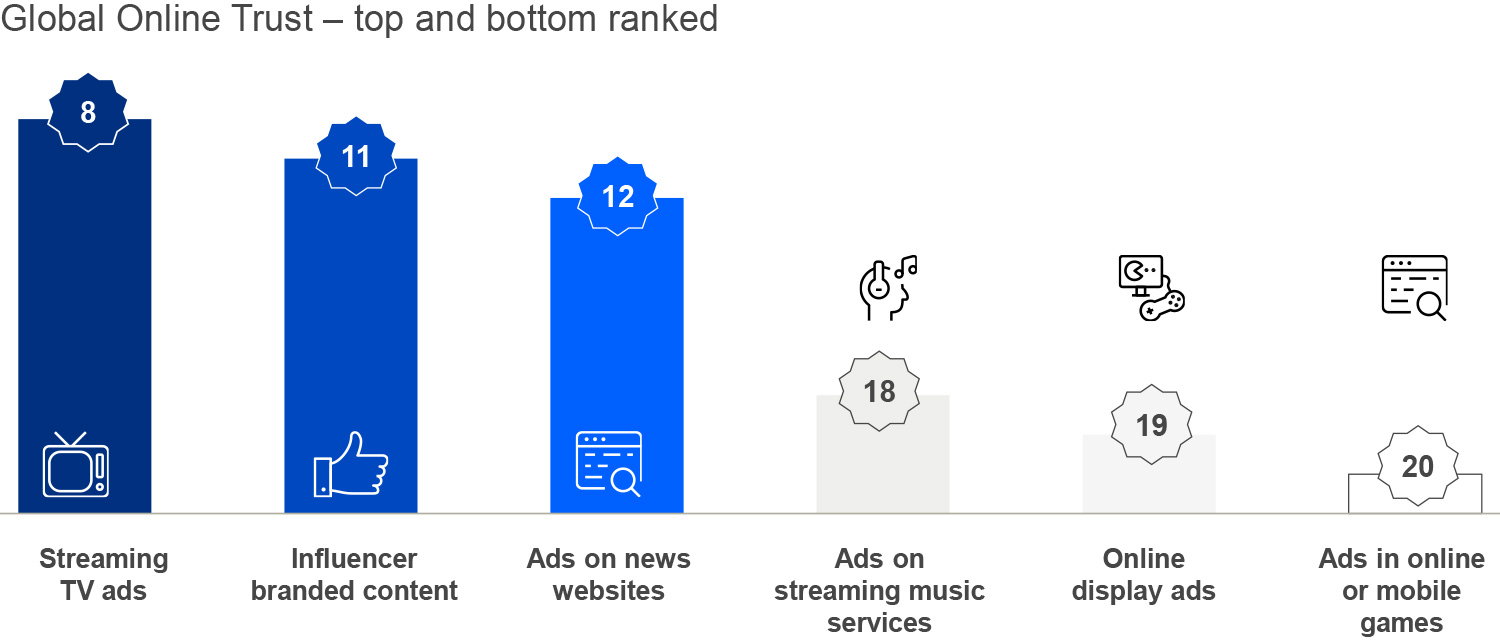
Source: Kantar’s Media Reactions 2020
Trust across generations
Overall, we see more trust among younger generations. The Gen Z average trust level is 17%, compared to just 10% trust among Boomers. Surprisingly, attitudes don’t vary much when it comes to regular TV advertising. But younger people are much more likely to trust TV programme sponsorship, cinema ads, events sponsored by brands and influencer content.
What about marketers?
There is a huge gap in trust between the marketers who are buying ads (average of 38% trust per channel), and the consumers who are viewing them (average of 15% trust). Marketers want a media channel to deliver their advertising safely and reliably, with good transparency about whether they are getting what they paid for, and whether it is working. In contrast, consumers want the advertising ‘deal’ to feel fair – a tolerable number of ads which are not too repetitive or intrusive. Even allowing for these different perspectives, the absolute difference in trust is quite stark. Marketer trust is also higher among agencies compared to their advertiser clients.
TV ads are the most trusted format for both consumers and marketers. However, marketers have much stronger trust in online video ads (2nd for marketers, 14th for consumers). The popularity of this channel with marketers may explain why it has been the fastest growing media format in recent times. Marketers are also more trusting of TV sponsorship (ranked 3rd) and sponsored events (ranked 5th), and less trusting of print ads.
Trusted brands
The consumer trust issue with online media channels does not trickle down to the brand level. In fact, the top three most-trusted global media brands are digital. Google leads the way, followed by YouTube and Instagram. So, users of these premium brands trust ads on these platforms more than they trust online ads generally. This suggests it may be the long tail of less reputable websites which in part give the overall online channel a bad name.
Trust around the world
In the UK, China, France and Australia, the most-trusted brand is an offline property (e.g. ITV in the UK, Le Monde in France). But in the U.S. and Brazil, we see Google topping the trust ranking ahead of all offline brands, and in Germany we see a tie between Instagram and RTL.
The most trusted online and offline ad environments vary around the world
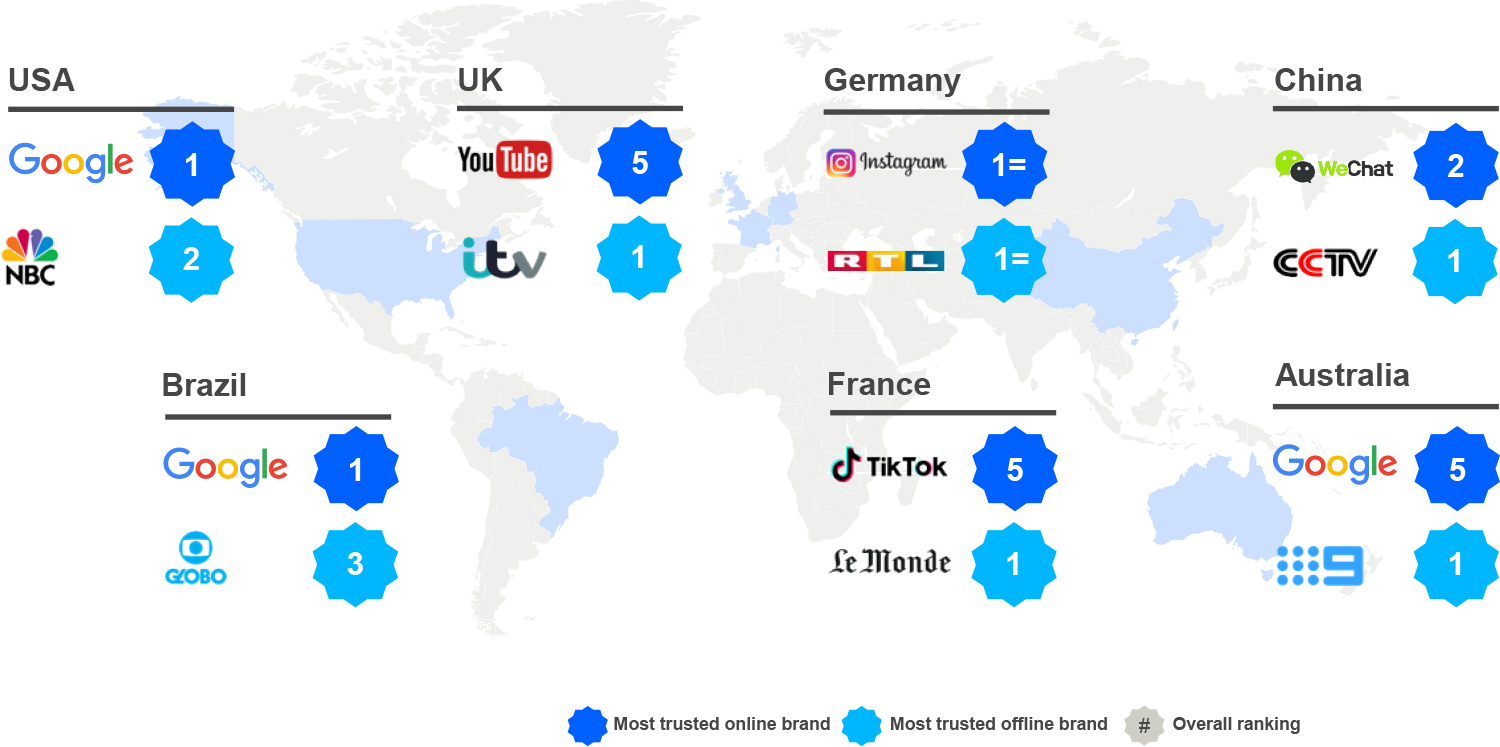
Source: Kantar’s Media Reactions 2020
Building trust
Analysis of different advertising metrics suggests the main way to build trust is whether an environment is perceived to be running high quality ads. Relevance through appropriate targeting also generally improves trust. But not if this targeting tips over into tactics which make people feel like they are being stalked.
The future of trust
Trust in advertising environments will be an increasingly important battleground in the coming years, as advertisers look for safe places for their brands, and as publishers seek to differentiate themselves within the cluttered media landscape. Media Reactions looks at consumer and marketer perceptions of media brands and channels on an annual basis, and tracks how trust in advertising is evolving.
Watch the recording from ESOMAR’s recent Transformation and Trust event or get in touch to find out more about our findings from Media Reactions.
